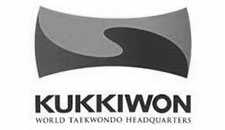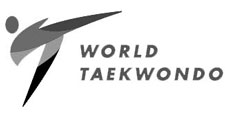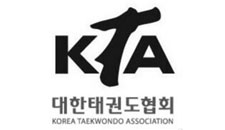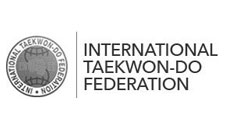Taekwondo 태권도Taekwondo Preschool
Promotion from one geup to the next can proceed rapidly in some schools, since schools often allow geup promotions every two, three, or four months. Students of geup rank learn the most basic techniques first, and then move on to more advanced techniques as they approach first dan. Many of the older and more traditional schools often take longer to allow students to test for higher ranks than newer, more contemporary schools, as they may not have the required testing intervals. View Taekwondo belt levels »
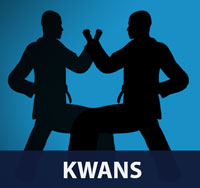
Chang Moo Kwan 창무관
The original Taekwondo Kwans. In Korean literally means building or hall, but when used in martial arts it can also refer to a school or clan of martial artists who follow the same style and/or leader.
Chang Moo Kwan is a Korean martial arts group was founded by Lee Nam Suk and Kim Soon Bae.
History
At the end of World War II, several Kwans were set up. In the late 1950s, these Kwans united under the name Tae Soo Do. A few years later, the name Taekwondo was adopted for its similarity in name, to Taekkyon (practiced by the Goguryeo, Silla, Baekjae, and Goryeo Dynasties).

Lee Nam Suk's teacher Byung In Yoon had founded the "YMCA Kwon Bop Bu" (권법무) in 1946. Byung In Yoon had studied Chinese Kung Fu (ch'uan-fa) under the guidance of a Mongolian instructor in Manchuria.
Yoon trained karate at university karate club in Japan with Kanken Tōyama. When he trained Karate in Japan, Japanese karate students pursued the Korean student and beat them up. Yoon Byung-in angered by the Japanese karate students, Yoon Byung-in sprung into action using Chuan-fa. He deflected and evaded the karate students’ strikes and kicks to the point that they gave up and ran back to tell their teacher about what happened.
Kanken Tōyama invited Yoon Byung-in to tell him about the non-karate martial art he used against his students. Yoon Byung-in explained to Toyama about his Chuan-fa education in Manchuria. Toyama appreciated the Chuan-fa background since he (Toyama) had studied Chuan-fa in Taiwan for 7 years, previously. They decided to exchange knowledge; Yoon Byung-in would teach Toyama Kanken Chuan-fa and Toyama Kanken would teach Yoon Byung-in his Shudo-Ryu karate. Yoon later created his art and called as Kwon Bop Kong Soo Do.
Unlike other taekwondo kwans, early Chang Moo Kwan was mainly based on Chinese Kung Fu (ch'uan-fa). The early Chang Moo Kwan taught Palgi kwon (which influenced by Bājíquán). Yoon went missing during the Korean War. His teachings were carried on by his top student Lee Nam Suk, who changed the name of the school to Chang Moo Kwan.
Organization
Today, the official Taekwondo Chang Moo Kwan still exists in Korea as a fraternal friendship club with its office in a youth athletic club in Seoul. The current president of Chang Moo Kwan is Kim Soon Bae. Kim is also on the Kukkiwon Dan Promotion Committee. The official martial arts curriculum of Chang Moo Kwan is the Kukkiwon system. Chang Moo Kwan, like all of the main Kwans, supports the Kukkiwon and the World Taekwondo Federation (WTF) which was renamed in 2017 to World Taekwondo (WT) 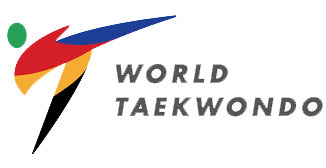 .
.
In the early YMCA Kwon Bup Bu and Chang Moo Kwan, the curriculum consisted of karate and chuan-fa. (McLain, 2009) This was one of two Kwans to have been influenced by Chuan-fa (Kwon Bup), which gave the techniques a smooth yet hard appearance when practiced or demonstrated. Chuan-fa forms from the Chang Moo Kwan included "Dan Kwon", "Doju San", "Jang Kwon", "Taijo Kwon", and "Palgi Kwon", among others. Early students practiced a bong hyung (staff form) created by Byung In Yoon himself and another created by Yoon Gwe-Byung (Yoon Kwe-Byung), who was a Shudokan practitioner and became a grandmaster of the Jidokwan.

Original Taekwondo Kwans ( 관 )
In Korean, kwan ( 관 ) literally means building or hall, but when used in martial arts it can also refer to a school or clan of martial artists who follow the same style and/or leader. On January 8, 1977, nine of the largest kwans unified, recognizing the Kukkiwon 국기원 as being the black belt promotional body for taekwondo. Prior to this declaration, many practitioners had considered their individual kwan certifications as being more valuable than the certificates which were issued by the Kukkiwon 국기원 or Korea Taekwondo Association (KTA). For more information View Taekwondo Kwans ( 관 ) »
There are five tenets defined in the International Taekwondo Federation (ITF) and several more in World Taekwondo (WT).
Perseverance ( 인내 in-nae ): "One will persevere time and time again until they have achieved a result which is adequate towards what one was trying to achieve." View Taekwondo Tenets »
RESOURCES
This article uses material from the Wikipedia article "Chang Moo Kwan", which is released under the Creative Commons Attribution-Share-Alike License 3.0.







